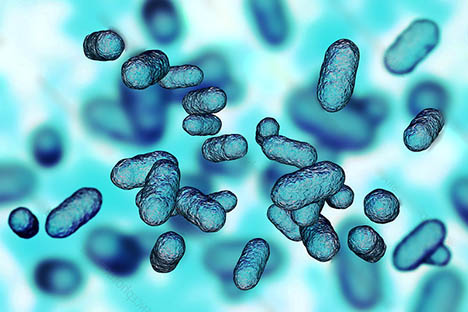
It seems that for years people have not considered their mouth a part of their body. That sounds strange, doesn’t it? Yet, even the medical field has ignored the implications of a diseased mouth on a patient’s bodily health. Today that is changing. There has been all sorts of research indicating a connection between the health of the human mouth and the overall health of the human body. A recent study has confirmed a connection between the mouth bacteria that causes periodontal disease and heart disease in mice. A large body of evidence makes the same connection in humans.
What Mouth Bacteria Can Tell Us
Mouth bacteria is a hot topic among researchers. Especially since the link between oral health and general health has been determined. Based on research it seems the role of the dentist may be expanding.
Super Computers and Mouth Bacteria
UT Austin performed research on mouth bacteria using supercomputers, studying the genetics of bacterial communities. According to scientists, the human body is host to 10, 000 different species of bacteria. These bacterial species were discovered during the five year research project conducted by the National Institute of Health (NIH). The project was developed to identify the human microbiome. During the research project scientists came to realize an interesting fact; microbes found in the human body outnumber actual cells by 10 to 1.

Porphyromonas gingivalis is one of the bad bacteria that causes gum disease.
Research at UT Austin
Your mouth harbors both good and bad bacteria. Some good bacteria, when left to grow without being removed will become harmful. The research study at UT Austin brought to light the fact that oral pathogenic bacteria can shift into a diseased state. These shifts have been linked to diseases such as gum disease, diabetes, and Crohn’s disease. Scientists speculate that if they can learn what encourages these shifts they can reverse or even prevent them and in essence prevent other diseases from developing.
Scientists also learned that changing the diet pathogenic bacteria feed on can actually change the state of the bacteria itself. As a result, the pathogenic bacteria that can be rewired to be unhealthy may also be able to be rewired to be healthy again by changing diets. Such findings indicate that diseases associated with oral health may be controlled.
Researchers from the University of British Columbia and the University of Florida infected mice with four different types of mouth bacteria associated with periodontal disease. After six months, tests showed that the mice infected with the oral bacteria showed an increase in cholesterol levels and inflammation, both of which are linked to heart disease. The test results also showed that the bacteria traveled throughout their bodies to the heart, lungs, liver, and kidneys of the mice. Additionally, certain bacteria associated with severe periodontal lesions were shown to form clots by attaching themselves to blood platelets, increasing the risk of stroke.
More Links
Periodontal disease, a chronic inflammatory disease, has also been linked to diabetes, Alzheimer’s disease, impotence in men, and it can even affect the health of an unborn child. Forty percent of cases of infective endocarditis are caused by bacteria from the mouth. According to research, mother’s suffering from periodontal disease during pregnancy can give birth to pre-term or low birth weight babies.
Scientists Discover More About Bacterial Behaviors
The word “bacteria” has gained many negative connotations. Our germ phobic culture creates products that claim to disinfect 99.9% of bacteria; anti-bacteria gel dispensers reside on bank teller desks, classroom walls, and grocery store registers everywhere. But did you know that not all bacteria is negative, especially in your mouth? Scientists are learning more every day about the differences in oral bacteria, how the oral microbiome interacts, and where they reside in our oral cavity. Not all of your oral microbiota will cause foul breath and often it is good for your immune system.
What Microbiologists Say About Your Mouth
According to a recent National Public Radio story, ecologists are exploring the mouth like any other ecosystem. Microbiologist, Dr. Paster of the Forsyth Institute, explains that anywhere from 75-100 species cohabitate our mouths at any given time, and each species is partial to a certain location in the mouth. For instance, a different type of bacteria will reside on the top of the tongue than on the sides of the tongue. The scientists describe how “good” bacteria in a healthy mouth will form a shield of protection so that harmful pathogens cannot land on the mouth.
What bacteria is harmful in your mouth?
Aside from the bacteria that cause illnesses like stomach viruses, the main oral pathogens you may be concerned with are streptococcus mutans and porphyromonas gingivalis. Streptoccoccus mutans, or S. mutans, are the pathogens responsible for cavities. These bacteria break down sugars and starches to create acid which erodes your healthy tooth structure. Periodontal disease is caused by an infection from porphyromonas gingivalis which collects with other bacteria in periodontal pockets.
Limiting oral disease with proper oral care
The American Dental Association offers recommendations to maintain healthy teeth and gums and to prevent tooth loss. The organization recommends a routine checkup and cleaning at least once every six months. A dental checkup allows your dentist to watch for serious dental issues, such as tooth decay and gum disease. Early detection enables the dentist to provide immediate treatment, preventing the need for costly and invasive procedures down the road. With a regular checkup, the dentist can assess the state of your dental health and recommend the best cosmetic procedures for improving your smile.
Unfortunately, brushing alone is usually not sufficient for keeping tartar buildup at bay. That is why dentists so strongly urge patients to floss every day. Twice a day brushing and flossing once per day is also recommended. The use of a tongue scrapper is suggested as the tongue harbors large quantities of germs.
Dental cleanings reduce mouth bacteria counts
Along with a checkup, you should receive a dental cleaning once every six months. A cleaning allows your dentist to remove layers of dental plaque buildup, brightening your smile and preventing gum disease. Without professional cleanings, the bacteria break down food particles and multiply. It begins to coat your teeth in a sticky substance known as plaque. As the plaque bacteria organize into colonies, it becomes more efficient at metabolizing food. As the colony grows, more and more acidic and toxic by products are produced. These by products cause great harm to the teeth and gums.
The metabolic by products cause gum inflammation. Also known as gingivitis, untreated inflammation eventually causes the gums to begin pulling away from the teeth, forming pockets at the gum line. When bacteria invade these pockets, the patient may develop gum disease. Symptoms of gum disease include bad breath, tender or red gums, swelling, gums that bleed easily, and loose teeth. Over time, patients may even begin to lose teeth. But with a simple cleaning, your smile can stay beautiful and free of embarrassing discoloration.
Preventing Cavities in Chicago
Scientists continue to discover more about the nature of oral bacteria. Complete oral hygiene is still the best way to prevent harmful bacteria from creating negative consequences to your oral health. You can prevent gum disease and tooth decay by scheduling regular dental checkups and cleanings with your Chicago dentist, Dr. Fondriest. Contact our Lake Forest, IL, dental practice at 847-234-0517. We offer a wide range of dental treatments for patients from the entire Chicago Metro area
